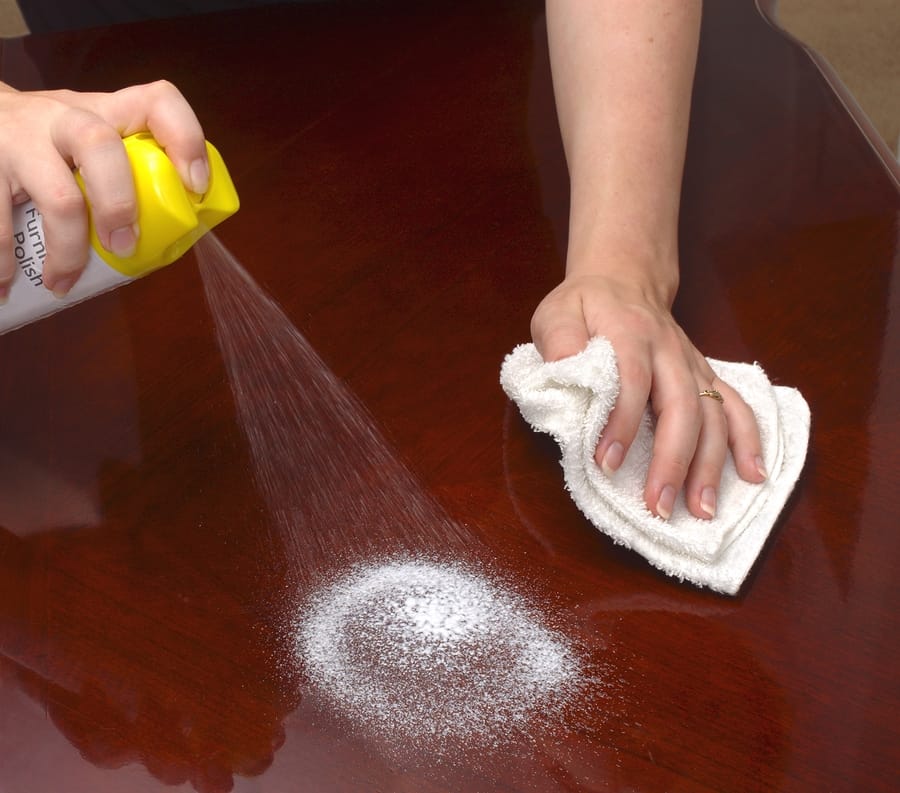5 Things Selling Furniture Polish Taught Me About Telling My Story During Tech Interviews
 Nicole Gathany
Nicole Gathany
I am a software engineer who had a lifelong struggle with behavioral interviews. For one, I find them intimidating and it’s strange to talk about yourself. But mainly and most relevant to this blog post, I hate lying! (Idk if it's because I'm ND or a Pisces sun and a Virgo moon but I prefer to be straight-forward).
In the past, when an interviewer would ask me “Have you used technology X?” I would just tell them “No!” And wouldn't qualify the answer with an explanation.
Then the next day I would get an email saying, “Dear Nicole, it was great speaking with you yesterday. Unfortunately, we will not be moving you onto the next round of interviews. We encourage you to learn [insert thing that I talked a little bit too much about how I did not know].”
But 4 years ago, I found myself in a sales pitch competition. I was asked to pick a random item in my home office and pitch that item to 45 of my coworkers who would then vote on the best pitch. I picked furniture polish. This was a low-stakes, fun competition for team bonding but little did I know that this friendly competition would change the way I talked about myself during interviews for the rest of my career.
I was nervous. I’ve never worked in sales so I wasn’t sure what to do. But I looked at the back of the furniture bottle and read the instructions and other details. It said that the polish was good for cleaning not only wood as you would expect but also granite, marble, leather, and stainless steel. That was news to me. I thought it was just for wood. I had to mention that.
So when it was my turn to pitch I started with “Hello everyone. Today I am here to sell you furniture polish. Now what do you think furniture polish is used to clean?”
One of my coworkers yelled, “Furniture!”
“That’s correct. Furniture made of what?”
“Wood!” someone else yelled.
“Right. But what if I told you that furniture polish could clean something else? Furniture polish can also clean stainless steel. Let me demonstrate.”
This was over Microsoft Teams, so I pointed my webcam to the stainless steel oven in my kitchen, sprayed the oven, and wiped it clean. “See how clean that is? And not only can you use it to clean stainless steel and wood, but you can use it to clean granite, marble, and leather.”
One of my co-workers asked, “Can it kill Corona virus?”
My reply was “It doesn’t say that on the back but the CDC says to keep your surfaces clean and this furniture polish does that.”
I won by an overwhelming majority. People even started calling it Corono virus cleaner.
This experience made me reflect on my interviewing skills and what I say and think about myself during the job search.
Here are the lessons I learned from selling furniture polish:
Focus on what you can do. Not what you can’t.
As I said before, during interviews, I had a habit of focusing on what I couldn’t do or skills I didn’t have.
When I sold the generic furniture polish to my teammates, I was a little bit nervous about the fact that furniture polish can’t be used on glass but I did not spend loads of time talking about that or how you can’t eat it or use it as perfume. I just focused on the fact that it could clean wood and granite and marble and leather and stainless steel!
Even when one of my co-workers asked “Can it protect you from Corona virus?” I didn’t say no right away. I just looked at the bottle and said “You know it doesn’t say that, but you know the CDC says to keep surfaces clean and it can help you to keep your surfaces really clean.”
MY co-workers were calling in the corona furniture polish! The guy who asked that question even voted for the furniture polish.
It’s the same with tech interviews (or interviews in any industry). You want to make the interviewer’s job easier by giving them information that would help them advocate for you with their team and move you onto the next round.
Let’s think about what that would look like.
Say you’re a front-end engineer and you’re applying for a job using Angular. You’ve never used Angular but you’ve used React and Vue. When you’re asked if you’ve used Angular during the interview, you can talk about your experience with similar technologies like React or Vue or Next.js or Svelte and emphasize to the interviewer that you are excited to learn Angular.
Do some preparation.
During this contest, I went last. I needed time to figure out what was good about this furniture polish. I read the back. It listed out the things that the furniture polish could clean. I thought about what stood out to me and I developed a strategy.
When you are prepping for your interviews, you also need to have a strategy. Research the company, network with people within the company. And don’t forget to practice interview questions.
Think about what the pain points of the company might be and how you can use your skills solve needed problems at the company.
Show. Don't tell.
One aspect of my strategy that I am really proud of is that I pulled a Billy Mayes on them and did a demonstration after telling them that it could be used on stainless steel.
Translating this strategy to tech interviews might more so apply to your portfolio than the actual interview. For example, show your work on Github and/or your website. Here’s my website and my Github!
Engage
Interviewing should be a conversation. A back and forth. It doesn’t have to be a chore.
During the sales pitch competition, I asked the audience questions about what they knew about furniture polish and this kept many engaged. You might not use the same style of engagement but ask the interviewer questions about the company and themselves.
Be honest
I used to have this chip on my shoulder about interviews. I thought that I failed so many because I was too honest. If you relate to this or have ever felt this way, I have some good news for you: You don't have to lie.

When selling the furniture polish to my coworkers, I never told my colleagues anything that was not on the bottle. True that I didn’t say anything negative about it. But I stayed focused on what was truly and honestly positive about the furniture polish.
Celebrities and other public figures use a method which I’ll called “What’s truly important here.” Whenever asked a question by a journalist that they don’t want to answer, instead of saying “I don’t want to answer that,” they say, “What’s more important is…”
Maybe you were recently laid off. There's no shame in being laid off. If you have been in tech long enough, you may have been affected by layoffs at one point in time. This is especially true now. But again your job is to make your interviewer's job easier so lead with something they can sell to their team. If you're asked during an interview, "Tell me about yourself" or "Why are you looking for a new role?," instead of saying "I was recently laid off." Say: "In my most recent role I was a software engineer at Company X where I worked with Y and Z technologies. There was a mass lay-off where half of 1000 employees were affected and I was one of them."
In conclusion, you never have to lie about yourself during an interview. Interviewing is all about convincingly packaging your strengths and reframing your weaknesses as strengths.
Unfortunately selling yourself in this way is easier said than done. So I challenge my readers to pick a random item in your home and try selling it to your loved ones, your dog, your cat, your roommate, your friends, or your stuffed animals. Take note of what you learned. Once you do, come back to this blog post and comment with anything you noticed and how you might apply it to the process of selling yourself and telling your story during your job search.
Subscribe to my newsletter
Read articles from Nicole Gathany directly inside your inbox. Subscribe to the newsletter, and don't miss out.
Written by

Nicole Gathany
Nicole Gathany
I am a people-centered software engineer with a past life in public health and reproductive justice. I'm using this blog to combine my love for tech and communication.